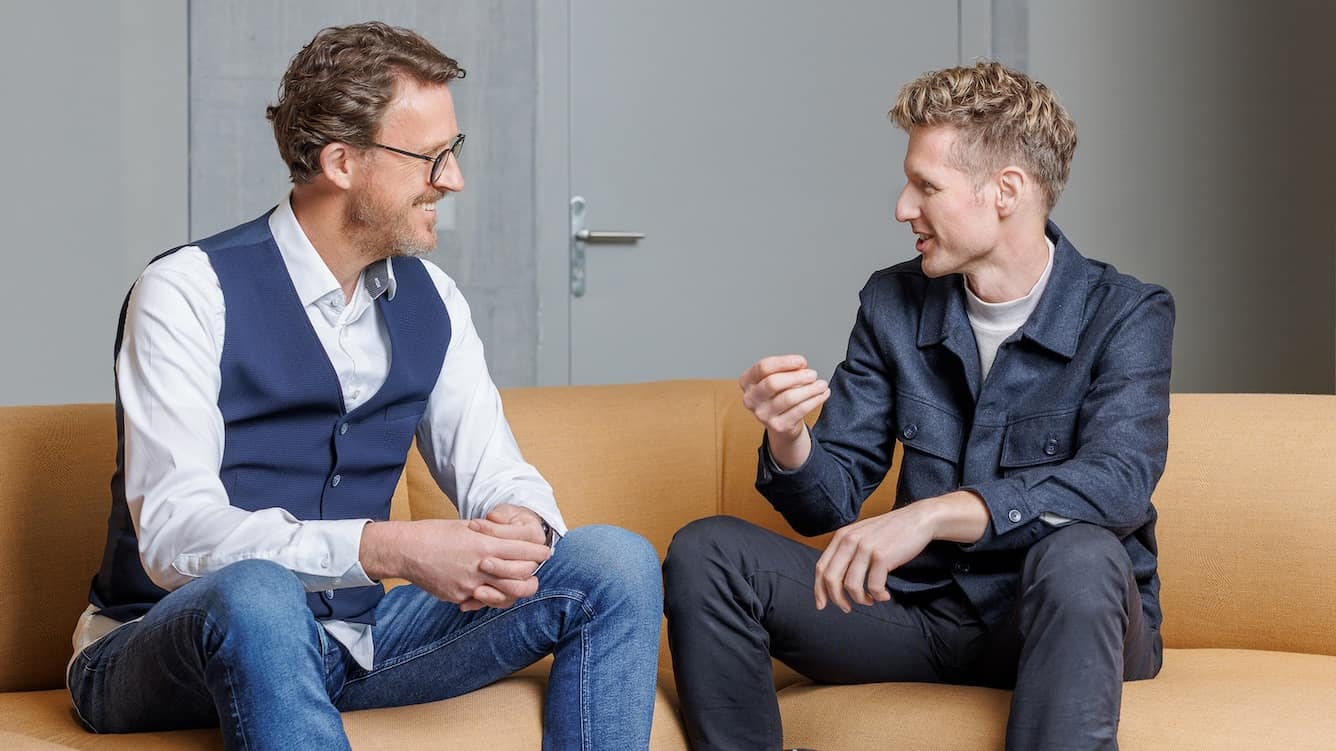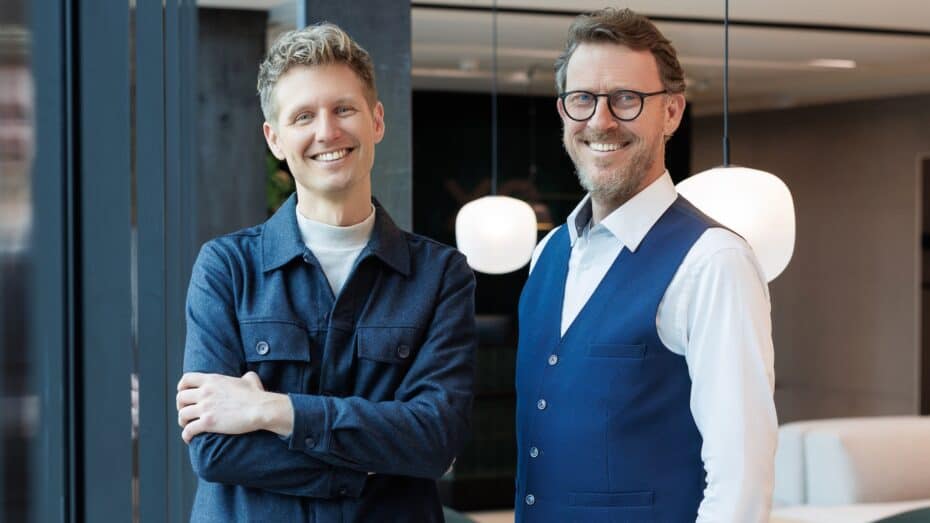Let’s start with the most important question: why are you merging?
Samuel Läubli
We’re doing it for our clients. Fabian and I have long talked about the challenges our clients face when it comes to multilingual communication, and we came to the conclusion that neither Supertext nor Textshuttle can offer a solution to them alone.
What kind of challenges are you talking about?
Fabian Dieziger
Nowadays, almost all companies who want to have a multilingual presence rely on several partners – language service providers such as Supertext – for the professional translation of important publications. They also usually have at least one AI system in place for translation on the fly, such as for in-house communication content.
Translation agencies provide reliable quality and advice but they’re often too pricey and too slow, with too much admin involved. AI systems, on the other hand, are fast and user-friendly, but they often come with limitations in terms of linguistic quality and data security.
And how do you plan to tackle all this together?
By seamlessly combining client-specific AI translation systems on a single platform with the services of the most creative language professionals. With this solution, the AI continuously learns from the experts and vice versa. It’s a one-stop shop for all our clients’ multilingual needs, from internal emails to scripts for international TV campaigns.

In conversation: Fabian Dieziger, co-founder and board member of Supertext, and Samuel Läubli, co-founder of Textshuttle and the new CEO of Supertext
Everyone’s talking about AI as a silver bullet. What is it that you do better?
Samuel Läubli
We don’t use AI as a marketing buzzword – we use it to solve real problems and make companies more successful in the long term. Specialization is often the way to achieve this. For instance, we can tailor translation models to a company’s specific needs and the subtleties of its corporate language, down to the very last detail. This offers huge advantages for companies.
Could you give us an example of such a tailored solution?
I can give you more than one. For OBI, we developed a system that allows a small in-house team to keep its online store, with more than 100,000 product descriptions, constantly up to date and on brand in 10 languages. For KUONI our AI compiles standardized travel documents, such as from Italian hotel descriptions and from the convoluted English often used by airlines, all in a fully automated process. And for Radiotelevisiun Svizra Rumantscha, we had the pleasure of developing the very first AI translator for Romansh.
And where’s the space for human creativity in the midst of all this AI?
Fabian Dieziger
It’s still important, just not for every text. We’re convinced that AI translation is already good enough for 80% of all translations. In 10 years, that figure will increase to about 99%. But even in 50 years’ time it still won’t reach 100%.
So our role as a service provider is to know which texts require a human touch, and then to support our clients with the help of the best experts around.
So are you now an AI company, or a translation agency?
Samuel Läubli
Both – and neither. We see ourselves as more of an insurance provider.
Anyone can translate nowadays, but the difference between us and the free technology is that we’re selling security. Firstly, we offer data protection, meaning that no confidential information will end up in the hands of the competition. Secondly, we offer quality content – customers won’t be put off by incorrect product descriptions on online stores, and GTCs and contracts are rock-solid in all languages. We can do both – with or without technology, or with a combination of both, depending on the requirements.
What can customers expect from you now already?
Fabian Dieziger
Both companies will, of course, continue to seamlessly offer their usual services. Nevertheless, we want as many clients as possible to join us on this journey and consolidate all their language needs with us.
This offers tangible advantages: tailored AI translation evolves thanks to the wealth of data that comes from professional translations, and translators benefit from an improved AI system to use as a tool in their work. It’s a match made in heaven – a streamlined solution from a single source that also simplifies administration.
And what are your plans for the future? What goals have you set yourselves?
Samuel Läubli
Things are going to get really exciting towards the end of 2024. We’re currently working at full speed to integrate all business divisions, and by the end of the year we’ll have a platform under the joint name “Supertext” that will enable a whole new kind of interaction with AI and experienced language experts.
We have a clear plan, and together we’re in the perfect position to really shake up the market. With around 30 developers and 90 language professionals, we’re agile enough to be trailblazers of technological developments and large enough to keep discerning clients such as Swatch, Puma and Generali happy.
One thing is for sure: we’ve got big plans – in more than 100 languages.
About the interviewees

Samuel Läubli studied artificial intelligence in Edinburgh and completed a PhD at the University of Zurich, where he co-founded Textshuttle as a corporate spin-off in 2016. As part of the merger, he will become CEO of Supertext.

Fabian Dieziger managed an international art shipping company before co-founding Supertext in 2005. As “Head of Business”, he made sure that even in a company dedicated to words, numbers were crunched, and he spearheaded Supertext’s business in Europe until 2022. Since then, he has focused on the company’s strategic direction as a board member and co-owner.
Images via Supertext
